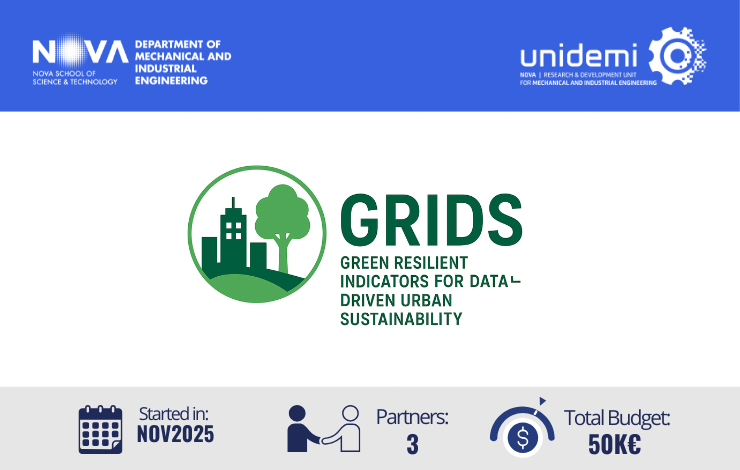MIT Portugal Exploratory Projects 2024

Starting Date: NOV2025
Number of Partners: 3
Total Budget: 50K€
Partners:
GRIDS is focused on developing a framework for quality and resilience in urban green transition projects. This project promotes the association of system dynamics and digital twin technologies, supporting smarter planning and operational optimization in cities.
The Green Transition is a global imperative, yet cities face growing challenges: rapid urbanization and the emergence of new mobility paradigms—connected, automated, and electric. These pressures affect infrastructure, energy, mobility, and emissions, making the transition a complex, transdisciplinary challenge. Ensuring the long-term success of urban green transition projects require new indicators, methodologies, and technologies that enable resilient strategies and adaptive decision-making.
The main objectives of the project are:
Portugal PI:
MIT PI:
TEAM: